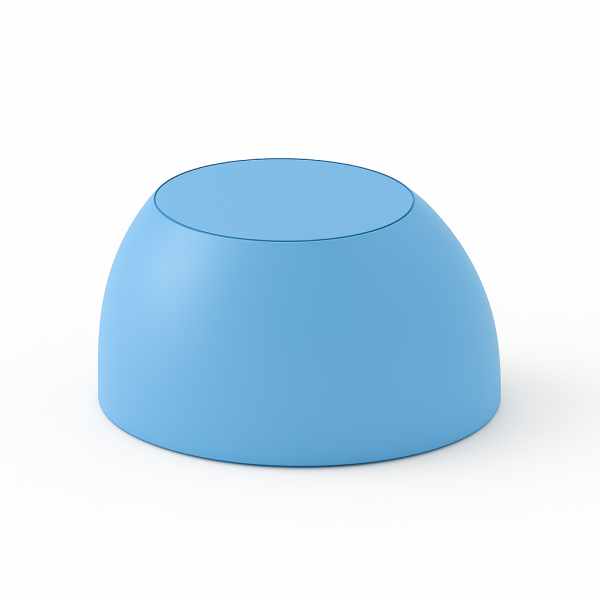 BornAgain
≻ git-develop
≻ Documentation ≻ Reference ≻ Sample model ≻ Particles ≻ Form factor ≻ Hard particles ≻ EllipsoidalSegment
BornAgain
≻ git-develop
≻ Documentation ≻ Reference ≻ Sample model ≻ Particles ≻ Form factor ≻ Hard particles ≻ EllipsoidalSegment
A horizontally truncated ellipsoid.



EllipsoidalSegment(R_x, R_y, R_z, t, b)
Parameters:
As for any other Form factor.
Class EllipsoidalSegment inherits from the interface class Formfactor.
Computation involves numerical integration in vertical direction,
$$ F(\mathbf{q})=2\pi \exp[iq_z(R_z-b)] \int_{-R_z+b}^{R_z-t} \text{d}z \space r_{x,z} r_{y,z} \frac{J_1(\gamma_{z})}{\gamma_{z}} \thinspace \exp(iq_z z) , $$
with the notation
$$ r_{x,z}:=R_{x}\sqrt{1-\Big( \dfrac{z}{R_z} \Big)^2}, \quad r_{y,z}:=R_{y}\sqrt{1-\Big( \dfrac{z}{R_z} \Big)^2}, $$
$$ \quad \gamma_{z} := \sqrt{(q_xr_{x,z})^2 + (q_yr_{y,z})^2}. $$
Volume has been validated against $$ V=\dfrac{\pi}{3} \frac{R_{x}R_{y}}{R_z^2} [ 4R_z^3 - 3R_z(t^2+b^2) + (t^3 + b^3) ]. $$
More special truncated shapes:
More special full shapes, if $t=b=0$:
Scattering by uncorrelated, oriented truncated ellipsoids for horizontal incidence. Rotation around $z$ axis:

Generated by Examples/ff/EllipsoidalSegment.py .
Up to v23 the formfactor “HemiEllipsoid” was used, which agreed with the IsGISAXS form factor “Anisotropic hemi-ellipsoid” [manual, Eq. 2.41] with wrong sign in the z-dependent phase factor and “Hemi-spheroid” [Renaud 2009, Eq. 229].